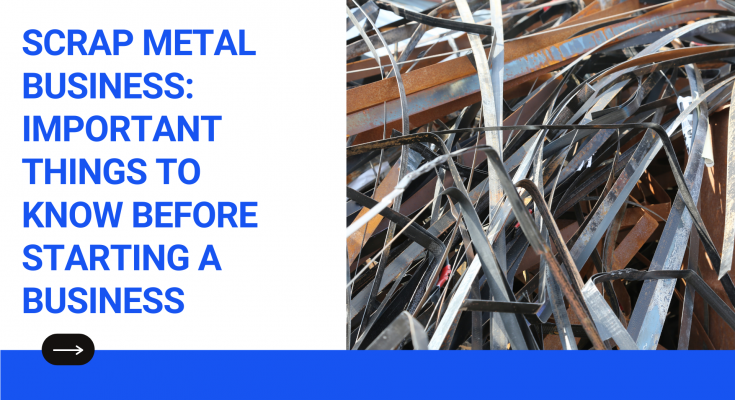Have you thought of starting a scrap metal recycling business? While this is a capital-intensive company that requires between 2 lacs to 10 lacs or many be higher in start-up and a high level of technological expertise and, equipment. it can be very profitable. Whether you want to recycle copper, gold, lead, nickel, silver, or tin, there are a few things you should know before starting your business.
Scrap metal recycling has developed into a multibillion-dollar industry. Every year, 90 tons of metal was recycled and reused. This method saves the country’s enormous costs and natural resources. Recycling breaks down scrap metal into individual metals. It’s a simple, fast, and cost-effective procedure.
Before starting a scrap metal recycling business, there are a few things to keep in mind. The following is a list of them:
- Analyze the demographics of your target market.
- Analyze the supply and demand ratio.
- Find out where you can get scrap metal.
- Analyze the scrap metal recycling center’s current operations.
- Analyze recent developments as well as legal and tax implications.
- Make sure you understand the VAT rules for scrap metal transactions and government license or permit.
It is important to understand that not all metals are recyclable. The following is a list of metals that are recyclable –
- Aluminum
- brass.
- tin
- Zinc
- Copper
- Steel
- Lead
- Iron
Keep these challenges in mind
You’ll face challenges along the way, just as you would in any other business. You will do your utmost to stop them if you keep these things in mind. There are some of them:
- Metal is extremely sharp, and you must treat it with great caution to avoid injury.
- Scrap engine parts and zinc are too bulky to pick without a crane or pulley, so if you don’t have one, don’t bother.
- Since you must sort all of the metal before recycling it, this is a time-consuming business.
- Toxins, such as lead, are present, which can cause serious health issues such as lead poisoning to you and your employee.
- It takes a significant amount of time, resources, and effort. Set a plan and stick to it if you want to build a stable business over time.
Concerns about the Law
To ensure that your Scrap business is respectable and stable, you will need to consider a number of legal issues. Obtaining insurance coverage for your property or equipment and vehicle is a must in order to protect your business. You’ll need insurance to cover liability problems if you’re working on a public site and NOC From Pollution board.
Customers signing liability certificates before accessing your site will protect both you and your business. You’ll still need to maintain meticulous records of all of the company’s earnings and expenditures.
Managing the business
When you’re ready to start your scrap metal business, there are a few more things to consider. While you can believe you can do the job alone, most scrap hauling tasks need at least two people to complete. Hiring workers or finding a business partner can take time and money, so make sure you know who is qualified for the job and what they can contribute to the business.
When starting your scrap metal company, be careful not to get ahead of yourself. Begin by making a scrap collection plan, but don’t take on too much at once. There may be issues at first, but this is to be expected, and finding and resolving issues will help you get back on track and ensure that your scrap metal business gets off to a good start. To promote your brand, you’ll also need to advertise on a variety of platforms.
You’ll need to figure out what kind of safety gear you and your staff will need. Day-to-day activities can be very risky, and you could be cut or bruised by sharp metals or artifacts. To – the risk of injury, you must invest in the best safety gear available in the market. You’ll also need to devise a plan that both you and your staff will adhere to. It’s important to have a business structure and legal scrap license permit form government and NOC from pollution board, if you are storing. So Good luck for your business.



